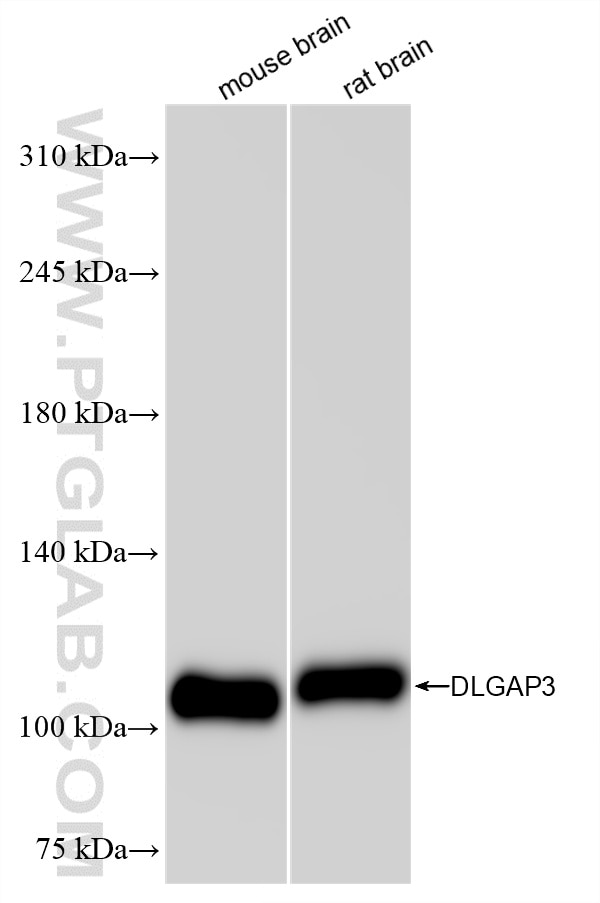Tested Applications
| Positive WB detected in | mouse brain tissue, rat brain tissue |
Recommended dilution
| Application | Dilution |
|---|---|
| Western Blot (WB) | WB : 1:5000-1:50000 |
| It is recommended that this reagent should be titrated in each testing system to obtain optimal results. | |
| Sample-dependent, Check data in validation data gallery. | |
Product Information
85695-1-RR targets DLGAP3 in WB, ELISA applications and shows reactivity with human, mouse, rat samples.
| Tested Reactivity | human, mouse, rat |
| Host / Isotype | Rabbit / IgG |
| Class | Recombinant |
| Type | Antibody |
| Immunogen | Peptide Predict reactive species |
| Full Name | discs, large (Drosophila) homolog-associated protein 3 |
| Calculated Molecular Weight | 106 kDa |
| Observed Molecular Weight | 106-120 kDa |
| GenBank Accession Number | NM_001080418 |
| Gene Symbol | DLGAP3 |
| Gene ID (NCBI) | 58512 |
| Conjugate | Unconjugated |
| Form | Liquid |
| Purification Method | Protein A purification |
| UNIPROT ID | O95886 |
| Storage Buffer | PBS with 0.02% sodium azide and 50% glycerol, pH 7.3. |
| Storage Conditions | Store at -20°C. Stable for one year after shipment. Aliquoting is unnecessary for -20oC storage. 20ul sizes contain 0.1% BSA. |
Background Information
DLGAP3, also named as DAP3, belongs to the SAPAP family. It may play a role in the molecular organization of synapses and neuronal cell signaling. DLGAP3 could be an adapter protein linking ion channel to the subsynaptic cytoskeleton. It may induce enrichment of PSD-95/SAP90 at the plasma membrane.
Protocols
| Product Specific Protocols | |
|---|---|
| WB protocol for DLGAP3 antibody 85695-1-RR | Download protocol |
| Standard Protocols | |
|---|---|
| Click here to view our Standard Protocols |



